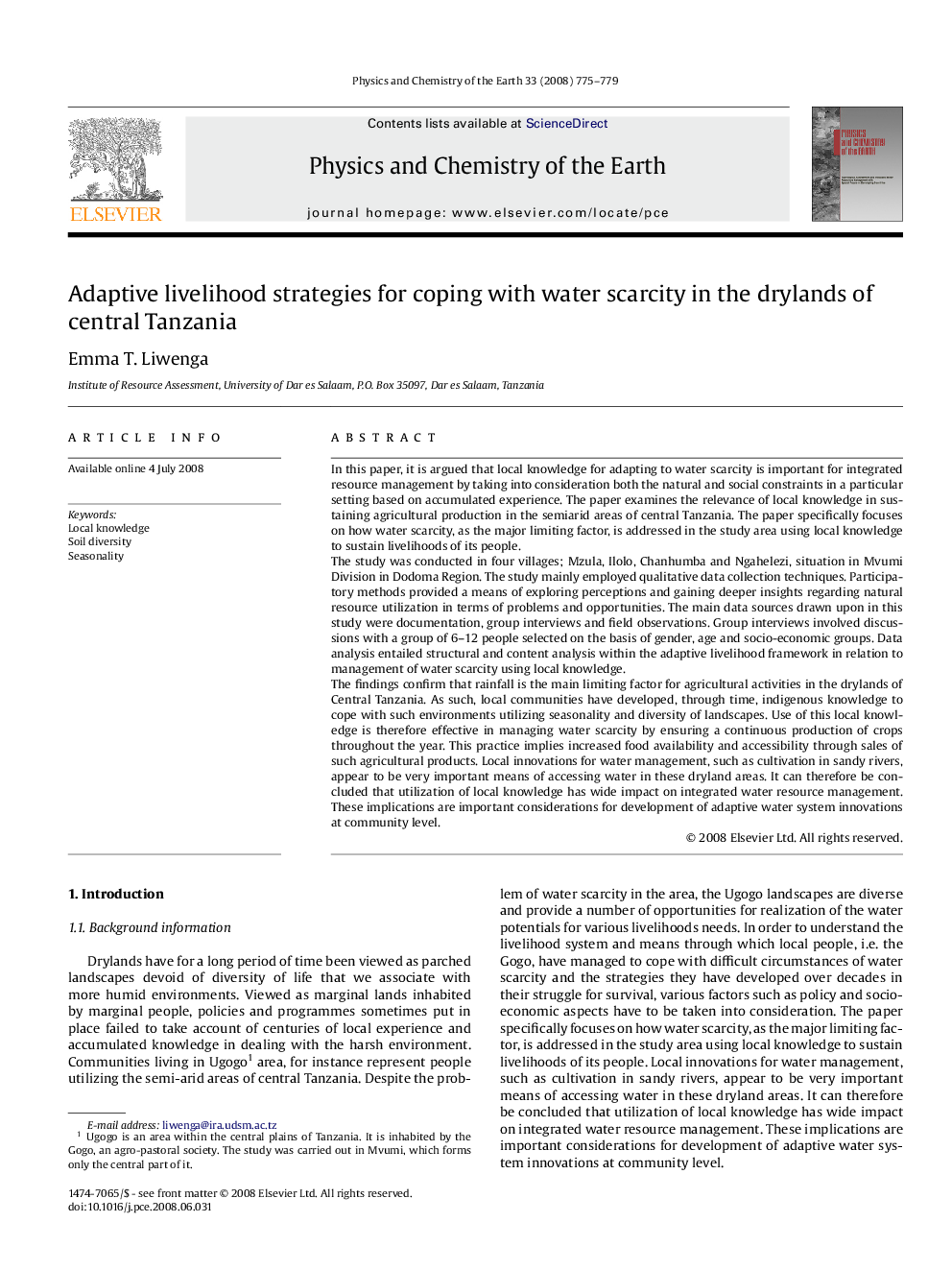| کد مقاله | کد نشریه | سال انتشار | مقاله انگلیسی | نسخه تمام متن |
|---|---|---|---|---|
| 4721734 | 1639397 | 2008 | 5 صفحه PDF | دانلود رایگان |

In this paper, it is argued that local knowledge for adapting to water scarcity is important for integrated resource management by taking into consideration both the natural and social constraints in a particular setting based on accumulated experience. The paper examines the relevance of local knowledge in sustaining agricultural production in the semiarid areas of central Tanzania. The paper specifically focuses on how water scarcity, as the major limiting factor, is addressed in the study area using local knowledge to sustain livelihoods of its people.The study was conducted in four villages; Mzula, Ilolo, Chanhumba and Ngahelezi, situation in Mvumi Division in Dodoma Region. The study mainly employed qualitative data collection techniques. Participatory methods provided a means of exploring perceptions and gaining deeper insights regarding natural resource utilization in terms of problems and opportunities. The main data sources drawn upon in this study were documentation, group interviews and field observations. Group interviews involved discussions with a group of 6–12 people selected on the basis of gender, age and socio-economic groups. Data analysis entailed structural and content analysis within the adaptive livelihood framework in relation to management of water scarcity using local knowledge.The findings confirm that rainfall is the main limiting factor for agricultural activities in the drylands of Central Tanzania. As such, local communities have developed, through time, indigenous knowledge to cope with such environments utilizing seasonality and diversity of landscapes. Use of this local knowledge is therefore effective in managing water scarcity by ensuring a continuous production of crops throughout the year. This practice implies increased food availability and accessibility through sales of such agricultural products. Local innovations for water management, such as cultivation in sandy rivers, appear to be very important means of accessing water in these dryland areas. It can therefore be concluded that utilization of local knowledge has wide impact on integrated water resource management. These implications are important considerations for development of adaptive water system innovations at community level.
Journal: Physics and Chemistry of the Earth, Parts A/B/C - Volume 33, Issues 8–13, 2008, Pages 775–779